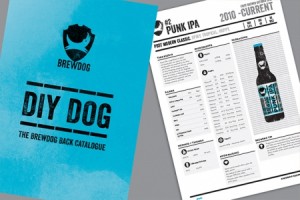In case you haven’t seen, Brewdog published recipes for all their beers a few weeks ago. My newsfeed was suddenly inundated with posts about how hard it’s going to be to get the already rare hops they use, in the quantities they use, but that’s another story.

Releasing recipes is quite a forward thinking move from Brewdog, and I really respect the breweries that don’t try and hide anything from their customers by using ”our secret blend’’ of hops or malts or whatever. I wonder what percentage of Brewdog’s customers actually brew beer or even care what goes into it. If KFC released their closely guarded secret recipe, how many of us would try and cook it for dinner? (Maybe Ken’s Fried Chicken would change slightly)
I have always been keen to help others brew better beer by sharing my knowledge and I feel that it’s important to be honest with people about what goes into the beers you make. However my friends and family voiced their concerns that I was being too open with people about the equipment and ingredients I use, because I was giving away my trade secrets!
I have the different view on this; apart from a certain amount of my own trial and error, everything I learn about brewing is from other breweries or people who publish their experiments on the internet, on forums or in books. I have a huge amount of respect for everyone who has offered me valuable advice or knowledge, and I feel I owe them a favour. So when I see their products for sale, I’m much more likely to buy them. It’s great to have open conversations about beer with anyone and I learn just as much from speaking to the people who drink the beers as I do from the people who actually design the recipes. Sharing information is all part of the craft beer movement and how it got to where it is today.
Recently Cloudwater’s DIPA experiments have been widely received and their blog post about this beer was full of technical insights about the production methods they use and the thought process behind the recipe design, they even named their sources for inspiration. This valuable information was then distributed to their peers (or as some would say competitors) to review and comment. An old fashioned view would think of this as a very un-wise business decision, but in reality it worked in their favour to gain respect for their scientific approach to brewing and gain huge interest in the beer which went on to sell out both versions 1 & 2.
So Brewdog releasing their recipes won’t mean people will stop buying their beers and just drink clones, it will only cement their position as figureheads and innovators of the craft beer industry.
Respect.